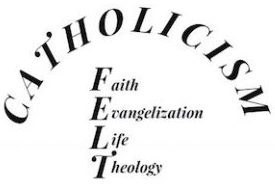
Theology can be a complicated matter.
While a purpose of theology is to assist the ministry of the Church in making the Faith accessible to her members, some have experienced confusion at times, rather than greater understanding, because of how a belief or an article of faith was explained at a particular moment. Hence, some people are not attracted to or have little interest in theology.
This is unfortunate. Theology is a critical reflection on what the Church teaches that allows us to appreciate and comprehend better what we believe and why we believe it. Therefore, it is very profitable to consider and develop those qualities that facilitate an effective engagement in theology.
There is a fundamental question
that the English Dominican theologian Rev. Aidan Nichols raised in one of his books on theology. He asked, “What sort of person must I be in order to become a theologian?” (Aidan Nichols, The Shape of Catholic Theology, 13). This question invites those in theology to consider what qualities are required of them to engage in it. In other words, what makes a person a theologian? What personal or spiritual characteristics must this person possess to be one? These questions seem to indicate that to do theology there are certain preconditions that are essential…
Concerning these preconditions,
Nichols pointed out that theology has been called a habit or habitus. He defined this as “a particular kind of disposition which fits the human mind to deal successfully and happily with some aspect of reality.” (Nichols, 13) This habitus of mind is Christ-like, possessing human and divine elements. It is ordinary and natural on the one hand, yet extraordinary and supernatural on the other hand.
The natural component of this intellectual habitus
is the ability of the human person to be theologically argumentative, retentive and imaginative. (Nichols, 14) The individual uses his or her natural abilities developed through study to follow an argument, to recall factual information, and, in summary, to creatively offer a proposition. The supernatural component of this habitus is the gift of personal and ecclesial faith received from God. Both the theologian’s personal faith as well as the body of belief (Faith) which the Church holds as true are absolutely necessary to engage in theology.
To better understand theology
as an habitus of mind, and to begin to answer the questions presented in the second paragraph of this article, it might help to recall further what a habit is and what it does. A habit is a behavior or action occurring repetitively over time resulting in it being carried out almost involuntarily. A habit becomes so customary and regular that it necessarily transforms into a disposition, with the latter creating an overwhelming preference and inclination towards a particular behavior or action. This overwhelming preference and inclination—this disposition—is an habitus. Hence, we can say that theology as an habitus is an overwhelming preference and inclination of the human mind towards searching for, discovering, and comprehending the God of all truth who reveals Himself for our salvation.
It can be edifying for us ministers and theologians
to reflect on theology as a habit. What has drawn us to theology? What has created the disposition that we possess? The answer to these questions can not only fill us with gratitude, but can also remind us of the importance of continuing those practices that have drawn us to this indispensable work. As ministers and theologians, we certainly maintain and strengthen our theological habitus through constant prayer and study. These two practices can increase our personal faith and our ability to share the common fides quae. This faith not only makes the theological habitus supernatural but can, in turn, enrich our prayer and theological study. I believe these things, together with an open and discerning spirit, are essential preconditions for effective theologizing within our Church and faith communities. May God grant us an increase in faith and give us the grace to possess a richer prayer and study life that would ultimately edify the body of Christ Jesus, in whose name we pray.
